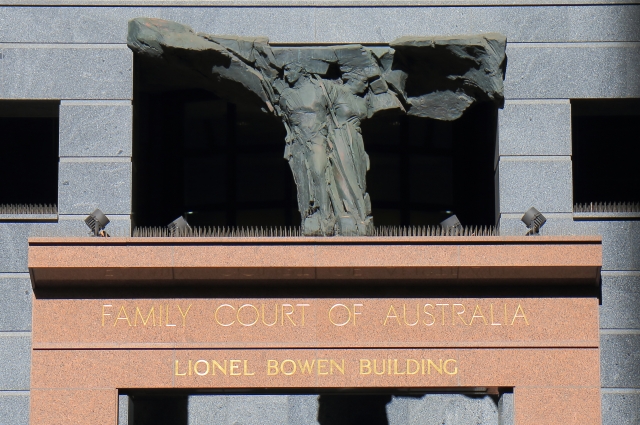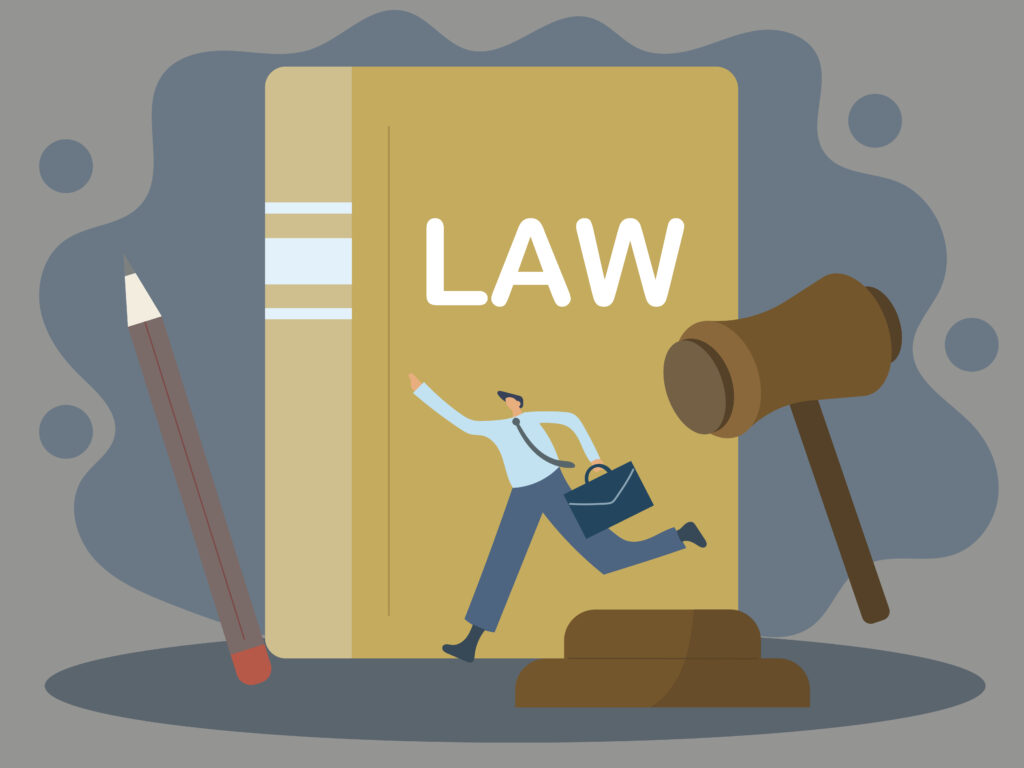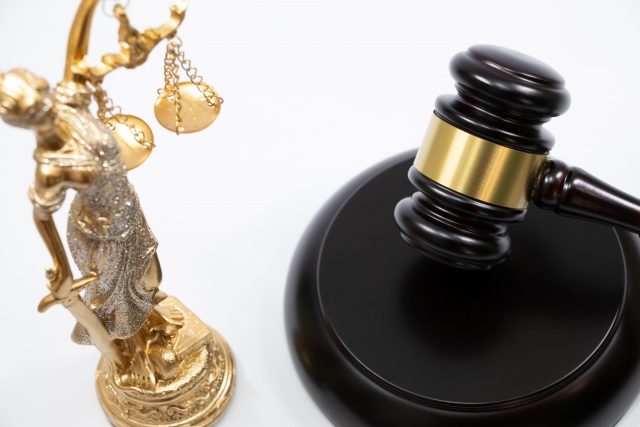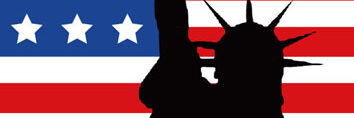オーストラリアのミッチェル弁護士から、弁護士ならではの法的視点に立ったお便りが届きました。
皆さんは、選挙の投票が義務である国をご存知でしょうか?投票をしない自由も認められている国も多いところ、オーストラリアは投票を国民の義務として位置付けています。
今回は、オーストラリアの投票義務がある中、宗教的な理由で投票義務が免除されるかについて解説しています。投票「義務」ですから、違反すれば罰則があります。何らかの理由で義務が免除されれば、罰則も気にしなくて良いわけですね。
↓↓ The original English version is bellow 🙂
豪_投票義務下で投票しない「自由」
ニューサウスウェールズ州(NSW)の地方裁判所は、「自由」理念の信仰は、義務投票制度における宗教的義務免除を認めるのに十分と判断しました。これは間違いなのでしょうか? また、このような決定を不服とする手続きはどのように進められるのでしょうか?
この宗教的義務免除の問題は、公訴局⻑官(豪連邦)とEaston氏の裁判([2018] NSWSC 1516)で議論されました。
選挙での投票が義務付けられているオーストラリア
このケースは、Adam Easton氏が投票を拒否したことから始まりました。オーストラリアは連邦法によって、選挙での投票が義務付けられていますが、一定の例外も認められています。つまり、連邦法は、特定の状況下での投票免除を定めています。
投票の義務と宗教的な「自由」に対する信念
例外となる状況の1つは、宗教上の義務です(1918年連邦選挙法第245条(14)で規定)。
Easton氏は、投票をしなかった罪で起訴されました。彼は、自分の道徳的誠実さと「自由」に対する信念が、投票によって悪影響を受けるという理由で、起訴に異議を申し立てました。
このケースの興味深い側面は、Easton氏が宗教的義務の例外に頼ろうとしながらも、彼自身、実は不可知論者(神の存在を信じることを約束しない)であることを認めていたことです。Easton氏は、自分の深く抱いている信念や道徳規範は、明らかに宗教的な信仰と密接に結びついていると主張しました。
地方裁判所のHeilpern判事はこれに同意し、連邦法が宗教的な例外を認めながら、築き上げられた不可知論者の道徳的で意識の高い信仰を認めないのは「単にナンセンス」であると判断しました。
地方裁判所が下した衝撃的な判断により、オーストラリアの義務投票制度の終わりが見え、法曹界を含め、社会に波紋が広がりました。
控訴審は、投票義務ありと判断
しかし、控訴審でこの判決は覆されました。
Adams判事は、宗教的義務の範囲は、いくら信心深くても、自認の非宗教的信念には及ばない、と判断したのです。
また、Adams判事は、控訴が期限切れで行われたことは「異常な状況」であったと述べています。通常、控訴の期限は、最初の裁判所での判決から28日以内です。この28日間を過ぎている場合は、高等裁判所に対して特別な申請を行い、期間延⻑の承認を得る必要があります。しかし、このケースは控訴審が行われました。
裁判の結果に不服のときー上訴する権利
上訴する権利は、どのようなタイプのケースかによって異なります。また、上訴は、ケース全体を再検討する機会ではありません。原審で提出された証拠のみで争われます。
つまり、例外的な状況を除けば、新しい証拠を提出する権利はないのです。
多くの場合、控訴審の焦点は、原審が法律の適用に誤りを犯したかどうかの検討に限定されます。原審の裁判官が、ある証拠の方が信頼できると判断しただけでは、控訴の理由にはなりません。
このように、ある判決に不満を持ったとしても、法律の適用に誤りがない限り、上訴に成功する見込みは薄いことが多いです。これは、問題解決する役割を担っているのは判事で、競合する証拠がある場合は判事が判断を下すという、我々の法制度の基礎があるからです。
上訴と裁判費用の負担
裁判費用に関して付け加えると、最初の裁判に負けた場合、負けた当事者が勝った当事者の弁護士費用を支払うという結果になる可能性があります。
控訴審では、訴訟に関連する弁護士費用が増加するため、控訴審に失敗した場合、敗訴当事者は、勝訴当事者の費用に関してさらに多くの金額を支払う必要があります(同様に、自身の弁護団の費用も負担することになります)。

ルールが厳格なオーストラリアの裁判
オーストラリアの裁判や聴聞は、高度な構造的プログラムに沿って行われます。複数のルールがあり、誰がいつ何を言っていいのかが決まっているため、裁判の様子を見ると、非常に統制がとれているように見えます。アメリカの映画やテレビ番組で見られるハリウッドスタイルの裁判ドラマとは全く違います。
証拠の提出
証拠に関する規則は非常に厳格で、裁判の公平性を確保するために法律が制定されました。例えばクイーンズランド州(QLD)では、証拠に関する規則は、1977年証拠法(Evidence Act 1977)に準拠し、1999年統一⺠事訴訟法(Uniform Civil Procedure Act 1999)では手続きに関する規則が定められています。
証拠は、関連性がある場合にのみ、証拠能力として裁判所に認められます。その証拠は、裁判の争点に関連していなければなりません。しかし、関連性のある証拠であっても、裁判の一部として効果的に導入されるためには、様々な要件に従わなければなりません。
証人による証言ー宣誓
法廷で証言する者は、まず真実を語るという誓いを立てなければなりません。伝統的に、この誓いは、人が右手を挙げることによって行われました(今も米国の法廷では慣行として続いています)。この伝統はイギリスがもたらしたものですが、(案外)宗教的、儀式的な目的ではありません。
実はイギリスの裁判官は、証人が以前に嘘をついたことがあるかどうかを知りたかっただけなのです。かつてロンドンで行われた裁判では、偽証罪(法廷の証人として故意に嘘をついたり、意図的に省略したり、虚偽の陳述をする犯罪)を含む特定の犯罪の有罪判決を受けた場合、右手の手のひらか親指に焼き印を押されました。その後、法廷で再び証言しようとするたびに、右手を挙げるよう求められるので、焼印があると証言が許されなかったということです。
証人として法廷に立つときのルール
以下は、裁判の証人が犯しがちな3つのミスです。
•自発的に情報を提供する
•推測する
•効果的に聞いたり考えたりしない
もしあなたが裁判に出廷するときは、敬意を払いましょう。裁判官には「Judge Judy」や「Mrs J」ではなく、「Your Honour(裁判官)」と呼びましょう。法廷の関係者や手続きに敬意を示すことは、裁判官の承認を得ることにつながります。

最後は、世界の法律に関する雑学コーナーです。
•質問1:陪審員が判決を下すまでに要した最短時間は何時間でしょう?
答え:1分!2014年7月、ニュージーランドの地方裁判所での出来事です。
•質問2:最初にオーストラリアの女性に陪審員になる権利が与えられたのはいつ、何州だったでしょうか?
答え:1923年、QLD州です。
•質問3:陪審員の召喚状で大きな間違いがあったことといえば?
答え:米国マサチューセッツ州で、Salと名付けられた猫の飼い主が米国の国勢調査にSalの名前を記載したため、飼い猫が陪審員として召喚されました。
•質問4:陪審員として召喚された有名人は?
答え:2010年、バラク・オバマ大統領が陪審員として招集されましたが、ワシントンDCでの一般教書演説を控えていたため、免除されました。
•質問5:陪審員召喚が免除されている有名人は誰でしょう?
答え:最近戴冠した国王チャールズ3世
▶️オーストラリア留学、オーストラリア滞在の皆様、サポートするエージェントの皆様、オーストラリアでの法的サポートは万全ですか?ご不明な点があれば、お気軽に i@jinken.com まで。
▶️オーストラリア滞在中の法的な緊急対応:
(日本語OK)MBA法律事務所 パートナー弁護士ミッチェル・クラーク 専用お問い合わせフォーム
▶️MBA法律事務所パートナー ミッチェル・クラーク弁護士のご紹介はこちらから

When“Freedom” is an Excuse for Not Voting
(Mistakes and Misunderstandings about going to Court in Australia)
The Local Court of New South Wales decided that purported faith in the idea of “Freedom” was sufficient for allowing the religious duty exemption to compulsory voting. Is this a mistake? And, what’s the process to appeal such decisions?
The question of the religious duty exemption was considered in the real Court case of Director of Public Prosecutions (Commonwealth of Australia) v Easton [2018] NSWSC 1516.
The facts of the case were that Adam Easton had refused to vote in an election. Under Australian Federal Government Law, it is compulsory to vote in elections. There are certain, limited exceptions to the general rule. Meaning, that the Federal Government Law prescribes the dispensation to vote in certain circumstances. One of the circumstances for an exception is on religious duty (and this is provided in section 245 (14) of the Commonwealth Electoral Act1918). Mr Easton was charged with failing to vote. He contested the charge on the grounds that his moral integrity and belief in “Freedom” would be adversely impacted by voting. The curious aspect of this case is that while he was seeking to rely on the religious duty exception, Mr Easton admitted that he was actually agnostic (meaning that he was not committed to believing in the existence of God). Mr Easton argued that his deeply held beliefs and moral code were analogist to and just as tangible as any religious faith. In the Local Court, Magistrate Heilpern agreed and decided that it would be “simply nonsensical” for the Commonwealth Government Law to recognise a religious exception but not a well-developed moral and conscious agnostic faith.
The shock result in the Local Court created a stir within the legal industry and broader community. It was thought that this was the beginning of the end for compulsory voting in Australia.
On Appeal however, the original decision was overturned. Justice Adams found that religious duty did not extend to a devote but avowedly non-religious conviction. Justice Adams also remarked that it was an “unusual circumstances” with the Appeal being brought out of time. That fact however did not prevent the Appeal from being considered. Typically, the time for Appeal is within 28 days of the original Court decision. If you are outside of that 28 day period, a special Application is required to be made to the Higher Court to seek approval for the extension of time.
Your right to Appeal depends on what type of case is being considered. And, an Appeal is not an opportunity to revisit a case in its entirety. The evidence that was presented at the Trial in the original Court will be the limit of the evidence. Meaning, that apart from exceptional circumstances, there is no right to introduce new evidence. Often, the focus of an Appeal is limited to the consideration of whether the original Judge made a mistake in the application of the Law. Simply because the original Judge adjudicated that certain evidence was more reliable is not grounds for Appeal. In this way, often someone who is dissatisfied with a decision will not have strong prospects of succeeding on an Appeal unless there was a mistake on the application ofthe Law. This is the consequence of the foundation of our legal system in which the Judge is the person given the role to arbitrate and where there is competing evidence it is for the Trial Judge to decide.
Plus, there can be practical consequences. In the event of losing the original Trial, there is likely to be the consequence of the losing party paying the legal costs of the winning party. On an Appeal there would be an increase in the legal costs associated with the case and so if the Appeal fails then the losing party will be required to pay even more money with respect to the costs of the winning party (as well as covering the expenses of their own legal team).
Trials and Hearings in Australian Courts follow a highly structured program. Multiple rules govern the conduct (who can say what and when!) so that watching the proceedings can appear very controlled. Not at all like the Hollywood-style drama of Court cases seen in American movies or TV shows.
The rules of evidence are very strict and have been established to ensure fairness in the Trial process. In Queensland, for example, the rules of evidence are governed by the Evidence Act 1977 as well as influenced by the procedural rules prescribed by the Uniform Civil Procedure Act 1999.
Evidence will only be admissible (meaning, allowed into Court) if it is relevant. The evidence must relate to an issue in the case. However, even relevant evidence must comply with various requirements for it to be effectively introduced as part of the Trial.
Anyone testifying in court must first swear an oath to tell the truth. Traditionally, the oath was accompanied by a person raising their right hand (and this continues as the practice in the courts in the USA). It was the British who gave us this tradition, yet not (as might be thought) for any religious or ceremonial purpose.
British Judges only wanted to know if the witness had lied before. According to the proceedings of the Court in London, if you were convicted of certain offences including perjury (the crime of wilfully telling a lie or making a deliberate omission or misrepresentation as a witness in court), the palm or thumb of your right hand was branded. Then, each time that you tried to testify again in Court, you would be asked to raise your right hand and upon displaying the brand would not be permitted to testify.
Three common mistakes made by witnesses at a Trial:
・Volunteering information;
・Guessing;
・Not listening or thinking effectively.
When you’re attending the Trial be respectful. Address the Judge as “Your Honour”, not as “Judge Judy” or “Mrs J”. Showing respect for the people and the procedures in the Courtroom will help gain the approval of the Judge.
Fun Trivia:
・Question: What was the shortest time taken by a jury to make its decision?
Answer: One minute! This occurred in a case in the District Court in New Zealand in July 2014.
・Question: When were Australian women given the right to be jurors and which State allowed first?
Answer: In 1923 jury service was introduced for women in Queensland–the first State inAustralia to do so.
・Question: Havethere been any major mistakes in jury summonses?
Answer: Yes, including in Massachusetts where a cat named Sal was summoned for jury duty because his owners had listed him in the US census.
・Question: Famous person called for jury duty?
Answer:In 2010, US President Barack Obama was called-up for jury duty, yet was excused because he was about to deliver the State of the Union address in Washington DC.
・Question: Which famous person is exempt from jury duty?
Answer: Recently crowned King Charles III.
